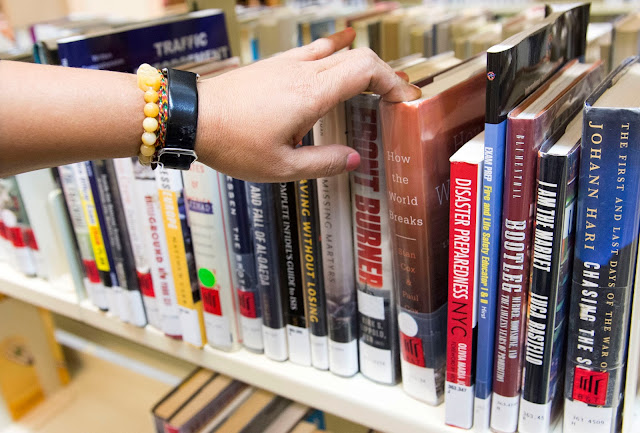The snow on Columbia University’s campus is beginning to thaw as Binalakshmi Nepram, who goes by Bina, takes me on a tour. Bina has been living underground in the U.S. for seven months after fleeing her native India. She is from a state called Manipur in the northeast that borders Myanmar. Known for her work as a disarmament activist, humanitarian, and writer, she came to New York in May of last year with only a suitcase after armed commandos broke into her home. A longtime advocate for families wrecked by gun violence in Manipur, she had come to the aid of a family whose 19-year-old son was murdered by the Chief Minister of Manipur’s son, connecting them with a lawyer in India’s Supreme Court. No sooner were commandos at her door--but she was out at a wedding. She is just now able to talk about her experiences.
Bina grew up surrounded by gun violence in Manipur and only upon moving to New Delhi for college did she learn this was not normal. In 2002, she authored the book South Asia’s Fractured Frontier, about how political violence is fueled by arms and narcotics in India, which became a pioneering work in the field. In 2004, she founded Control Arms Foundation of India, the country’s first civil society focusing on disarmament. Then in 2007, she founded the Manipur Women Gun Survivors Network, aimed at helping women from the area who have experienced gun violence in their families rebuild their lives with entrepreneurship on a small scale so they can be self-sustaining. Bina has since been recognized internationally for her humanitarian work, by the Dalai Lama Foundation's WISCOMP Scholar of Peace Award, the Sean MacBride Peace Prize, and the CNN-IBN Real Heroes Award, among many other accolades. At Columbia, Bina is a visiting scholar in the Institute of Human Rights specializing in the rights of indigenous peoples.
When Bina first came to New York, she was very lonely, she says. So she decided to find the heart and soul of the city.
“Did you find it?” I ask, befuddled by what seems like a momentous task.
“I did,” she smiles. “The New York Public Library.”
We walk to a branch down the street from Columbia. Bina immerses herself in non-fiction about social issues in America. In India, she tells me, you can only take out three books from the library at once, but at the New York Public Library, you can take out 50 books at once. “It’s so wonderful!” she smiles.
Our next stop is Masala Club a few blocks down. Bina has never been, but spots the bright white sign as we’re walking on Broadway. “Oh, let’s go there!” she says, excited. She orders us first chai and pakora, which she describes with a chuckle as Indian tempura, and later dosas which we split with her friend Gilbert who joins us. Without noticing, it seems I’ve cleaned my plate. But I guess a good conversation will do that to you.
Follow Bina on Twitter.
Follow me on Instagram and Twitter.
Subscribe to Miss Manhattan Hangs Out.
Bina grew up surrounded by gun violence in Manipur and only upon moving to New Delhi for college did she learn this was not normal. In 2002, she authored the book South Asia’s Fractured Frontier, about how political violence is fueled by arms and narcotics in India, which became a pioneering work in the field. In 2004, she founded Control Arms Foundation of India, the country’s first civil society focusing on disarmament. Then in 2007, she founded the Manipur Women Gun Survivors Network, aimed at helping women from the area who have experienced gun violence in their families rebuild their lives with entrepreneurship on a small scale so they can be self-sustaining. Bina has since been recognized internationally for her humanitarian work, by the Dalai Lama Foundation's WISCOMP Scholar of Peace Award, the Sean MacBride Peace Prize, and the CNN-IBN Real Heroes Award, among many other accolades. At Columbia, Bina is a visiting scholar in the Institute of Human Rights specializing in the rights of indigenous peoples.
When Bina first came to New York, she was very lonely, she says. So she decided to find the heart and soul of the city.
“Did you find it?” I ask, befuddled by what seems like a momentous task.
“I did,” she smiles. “The New York Public Library.”
We walk to a branch down the street from Columbia. Bina immerses herself in non-fiction about social issues in America. In India, she tells me, you can only take out three books from the library at once, but at the New York Public Library, you can take out 50 books at once. “It’s so wonderful!” she smiles.
Our next stop is Masala Club a few blocks down. Bina has never been, but spots the bright white sign as we’re walking on Broadway. “Oh, let’s go there!” she says, excited. She orders us first chai and pakora, which she describes with a chuckle as Indian tempura, and later dosas which we split with her friend Gilbert who joins us. Without noticing, it seems I’ve cleaned my plate. But I guess a good conversation will do that to you.
Follow Bina on Twitter.
Follow me on Instagram and Twitter.
Subscribe to Miss Manhattan Hangs Out.


















No comments:
Post a Comment